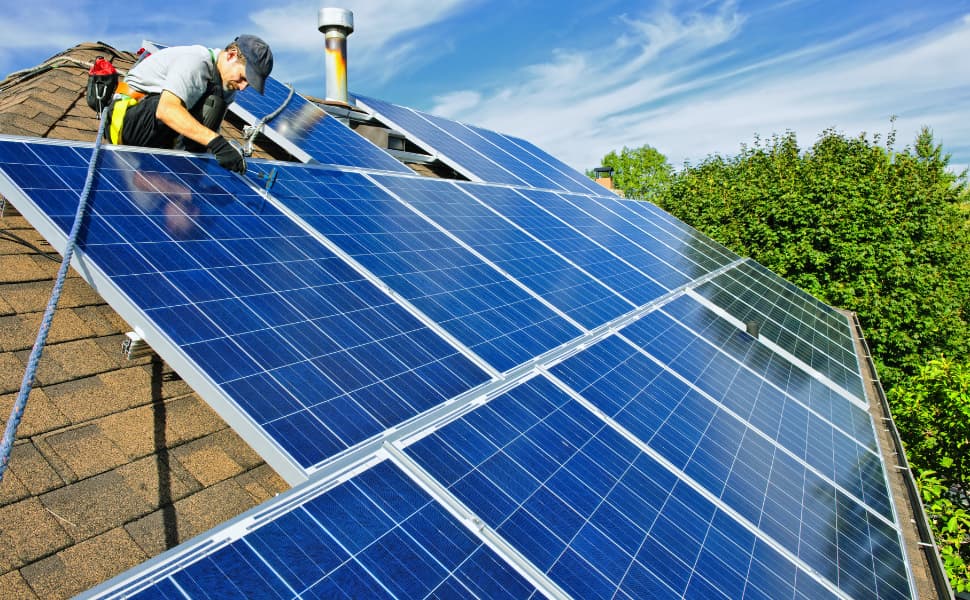An effective, efficient heating and hot water system is essential for home comfort in any temperate climate. Determining the right size is one of the most important parts of deciding on a new boiler whether you’re installing a new boiler or replacing an old one. An oversized unit will cost too much and could be impractical to install, while a unit that is too small will run too often and increase your energy costs. Here is a simple guide to selecting the right size gas boiler for your home.
What Size Gas Boiler:
Number of Radiators
For this step, you’ll simply need to walk through your home and get an accurate count of how many radiators you will need to supply with the new boiler. Physically visit each space in the home rather than relying on memory. It is important to get an accurate count because a given boiler’s volume can only support a certain number of radiators. If you try to stretch a boiler too far, your results will not be satisfactory. For smaller homes with ten or so radiators, a small to medium boiler with 24 to 30 kW of capacity should meet your needs quite well. Larger homes with around 20 radiators will require a heavier unit of 35 to 42 kW.
Calculate Home Efficiency
The above size guidelines are estimates based on the typical construction of homes. If your home’s energy efficiency is significantly different from that average, your boiler size will need to be adjusted. There are so many factors impacting efficiency that the ideal move will be to consult with a heating engineer, who can examine your home’s radiator demand, insulation, window size and type, and many other factors and determine exactly what size of gas boiler will best meet your needs. This step will easily save you money in the long run.
Other Hot Water Usage
Because your boiler also supplies hot water for lavatories and the kitchen, you will need to allow for your consumption of hot water in choosing a gas boiler size. While most families fall somewhere in the average range for hot water use, there may be unique characteristics of your family and lifestyle that drive this figure up or down for you.
For example, larger families will require more hot water for laundry and bathing, so their boilers need to be larger. Conversely, a single person will obviously need far less water. If that applies to you, be careful not to downsize too much. The need to maximise resale value dictates that a large home will still be better off with a larger boiler even if there are few people living in it.
Home Layout
The efficiency of home heating is all about the building’s exposure to the outdoors. A row house with adjacent units on each side will stay warmer than a free-standing home with weather hitting all four walls. For that reason, identical homes built in different circumstances will require different boiler sizes.
The orientation of your home will also play a part in the size boiler that you need. Homes with trees nearby to break up the wind will cool down more slowly than a home atop a gusty ridge, but very large trees will also see a reduction in the sun’s ability to add warmth. Again, consulting with a heating engineer or a boiler specialist will help you take all these factors into account so that you choose the right boiler for your needs.
Pressure Requirements
Your boiler doesn’t just make hot water. It is designed to distribute that hot water throughout the home to the radiators and fixtures where it is used. A smaller boiler may not generate sufficient pressure to reach the most distant areas of a home, even if it would be able to meet its demands once it gets there. Every centimetre of pipe used by your home’s hot water represents a little more heat loss for which your boiler must be able to compensate.
The number of floors in your home, the distance to the most far-flung radiators, and the overall length of the plumbing system you have will all play a big part in determining what size gas boiler you need for efficient heating in your home.
Performance Testing
We can speculate about measurements and calculations all day, but when it’s all said and done, your home’s results are what matters. How is your existing boiler performing? Is the home staying warm in cool weather? Do you have adequate hot water for your needs, and does that hot water begin flowing quickly enough? Do some online research about expected temperatures and wait times for hot water. Place an empty container of a litre or so under a showerhead and see how much water you must run before it gets hot enough to use. The longer it takes, the less efficient your system is.
Research your utility costs. Perhaps you’ve just assumed they were in line, but you may have never compared them to a standard. Compare your home’s energy consumption (not the actual bill, as per-unit costs fluctuate) to the average for a home of the same size. If you’re using more, your system may be working too hard and should be replaced with a bigger one.
Boiler Type
Your home’s age and demand help determine what type of boiler works best. A combi boiler can heat water instantly on demand, but it has just one outlet and cannot handle a high volume of hot water for a large family. Conventional boilers utilise both hot and cold tanks, and they can handle the needs of a larger family. They are the most direct replacement for the boilers already in most older homes, making them the best option for a simple job. Finally, system boilers draw water directly from the mains and store it in a tank for quick access to larger volumes of hot water, making them very effective for higher demand.
Your Convenience and Judgement
A new gas boiler is a major financial investment, but the cost of the system is just the beginning. Your daily utility cost is the long-term aspect of your purchase in terms of pennies and pounds, but you must also think about the convenience factor. Is your home warming up rapidly enough when there’s a chill in the air? Are you waiting a long time for water at your tap or shower? When all the numbers have been crunched and seem to suggest an answer, insert your own thoughts about it. Sometimes the most important parts of the decision come from your thoughts, not a calculator. Never let your good sense be pushed aside by accountancy.
As you can see, there are many different things to take into consideration if your home needs a new boiler. The process of determining what will work best will require some time, effort, and energy on your part, but that investment is well worth it when you get a unit that will serve your home’s needs for many years to come without creating undue costs through purchase, installation, and daily use.
Related Articles
- 4 Signs You Need a New Boiler
- What Does Gas Boiler Service Involve?
- What Temperature Should You Set Your Central Heating to When It’s Cold?
- Give your Radiators a Little TLC Over the Winter Period
- Heat Pump Funding – Have You Heard of the Boiler Upgrade Scheme?




